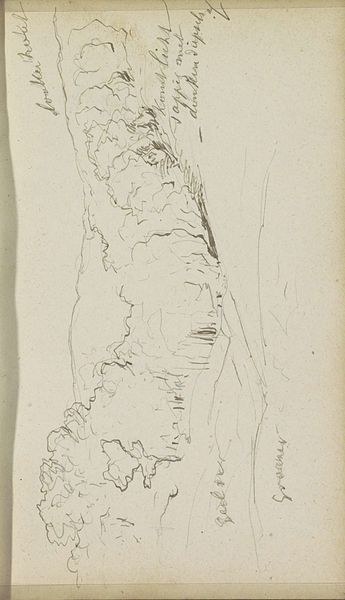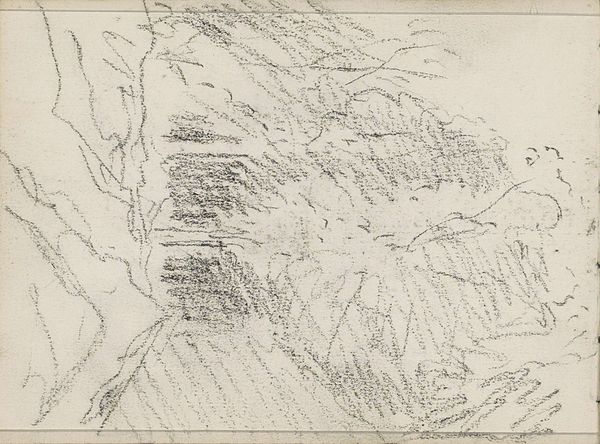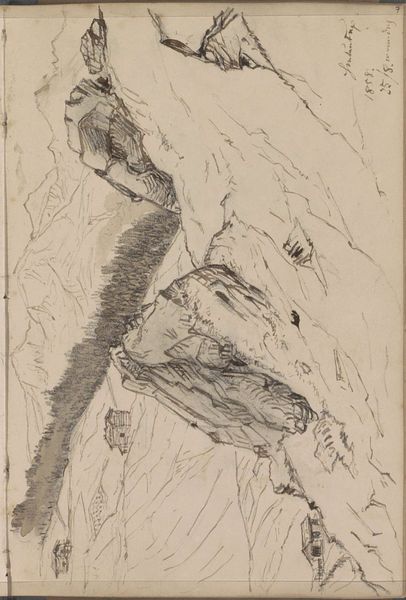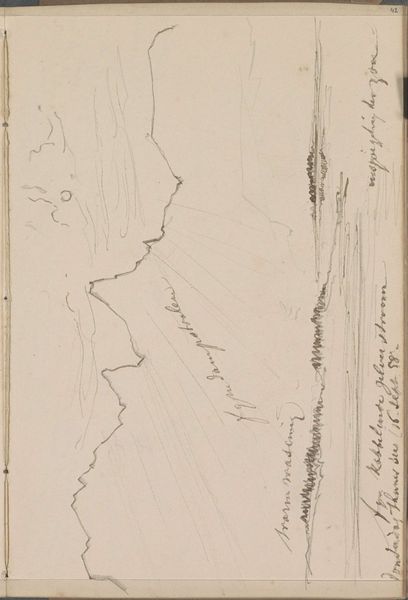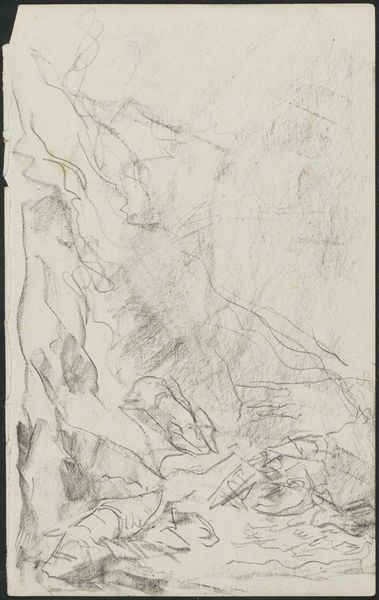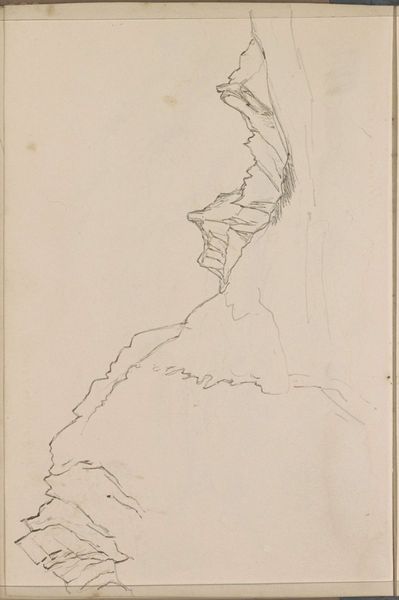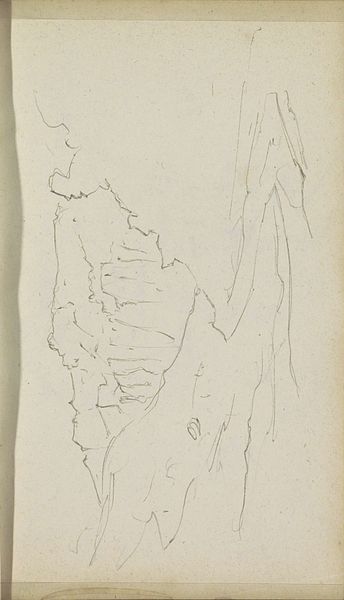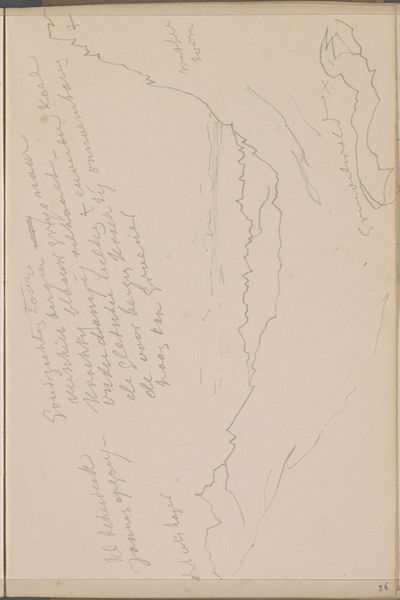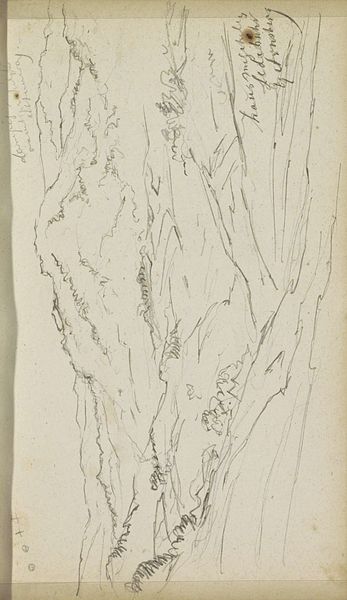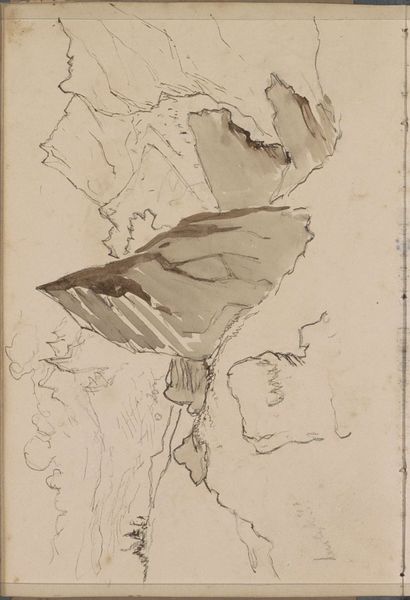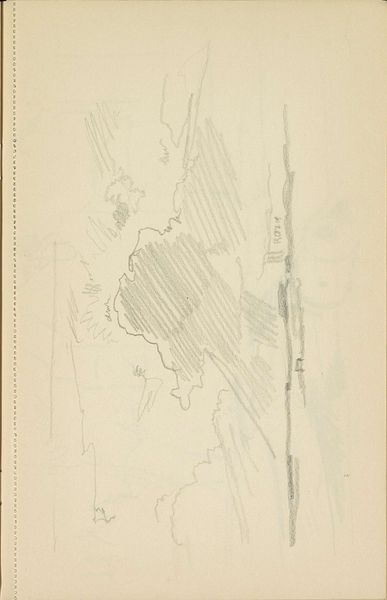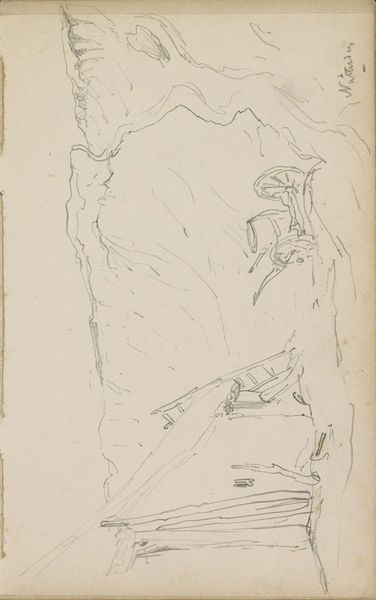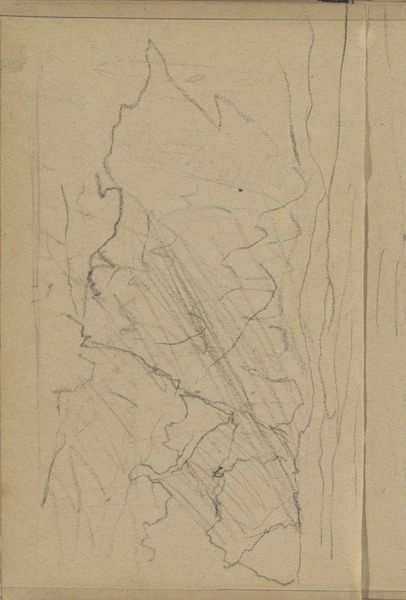
Copyright: Rijks Museum: Open Domain
Johannes Tavenraat sketched this mountain landscape with pine trees in graphite. The towering presence of mountains and forests often represents the sublime power of nature. Consider how such motifs recur across cultures. Mountains, for instance, appear not only as geographical features but also as sacred places in numerous traditions—from Mount Olympus in Greek mythology to Mount Sinai in Judeo-Christian lore, symbolizing spiritual ascent and divine revelation. The pine tree, evergreen and enduring, symbolizes immortality and resilience across various cultures. It appears in classical art as an attribute of woodland deities, such as the Greek god Pan, and in Eastern traditions, it signifies longevity and steadfastness. Notice how Tavenraat captures the emotional impact of nature. Such depictions are not merely representational; they evoke a sense of awe and reverence. It is through this psychological engagement that the symbols of nature continue to exert their profound influence, reminding us of the enduring power of cultural memory. These symbols reappear, evolve, and take on new meanings in different historical contexts.
Comments
No comments
Be the first to comment and join the conversation on the ultimate creative platform.
